Low Toxicity Living
- 24 May 2020
- Joanna Rusling
Low Toxicity Living

Winter has arrived and as the weather becomes cooler and we huddle for warmth, we become more vulnerable to toxic exposure. With windows closed, heaters on, and lovely dyed wools wrapped around our necks, being in winter contributes to the overall toxic load in our lives.
You may be wondering what I mean by toxic load, and how it could possibly be in your life. I want to talk about volatile organic compounds and how the toxins in our environment which we breathe, eat, and absorb are a big deal. They’re all around us, all the time. They’re referred to as VOC’s and although we can’t avoid them entirely, they’re something we really want to be conscious of.
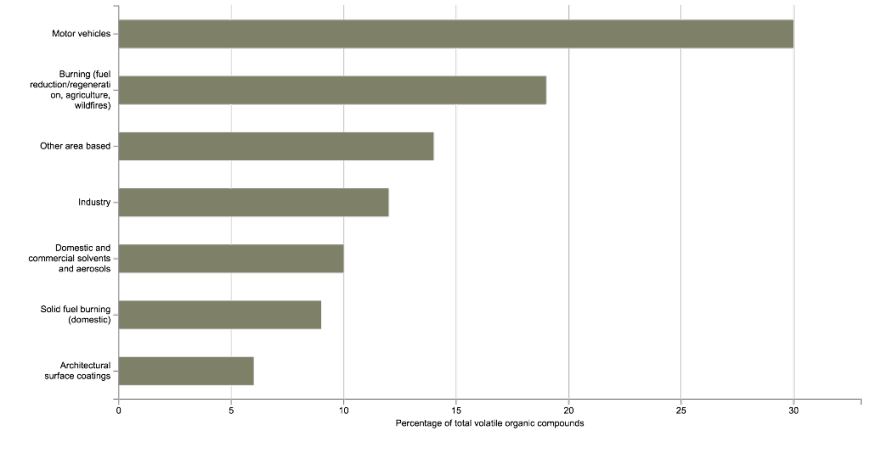
source: https://soe.environment.gov.au/theme/ambient-air-quality/topic/2016/volatile-organic-compounds
As an example, have you ever wondered about the oily residue on the inside of your car windscreen? You’ve wiped it clean several times, but every few months you notice the oily film returns. This is caused by the fumes emitted from the plastics, upholstery, aircon etc. that evaporate as the car heats, cools, and ages. This give us reason to think twice about that ‘new car smell’ we all know about! One of the ways we can get around this, is by using essential oils to help dissipate chemical smells, build us up, and still enjoy a pleasant aroma.
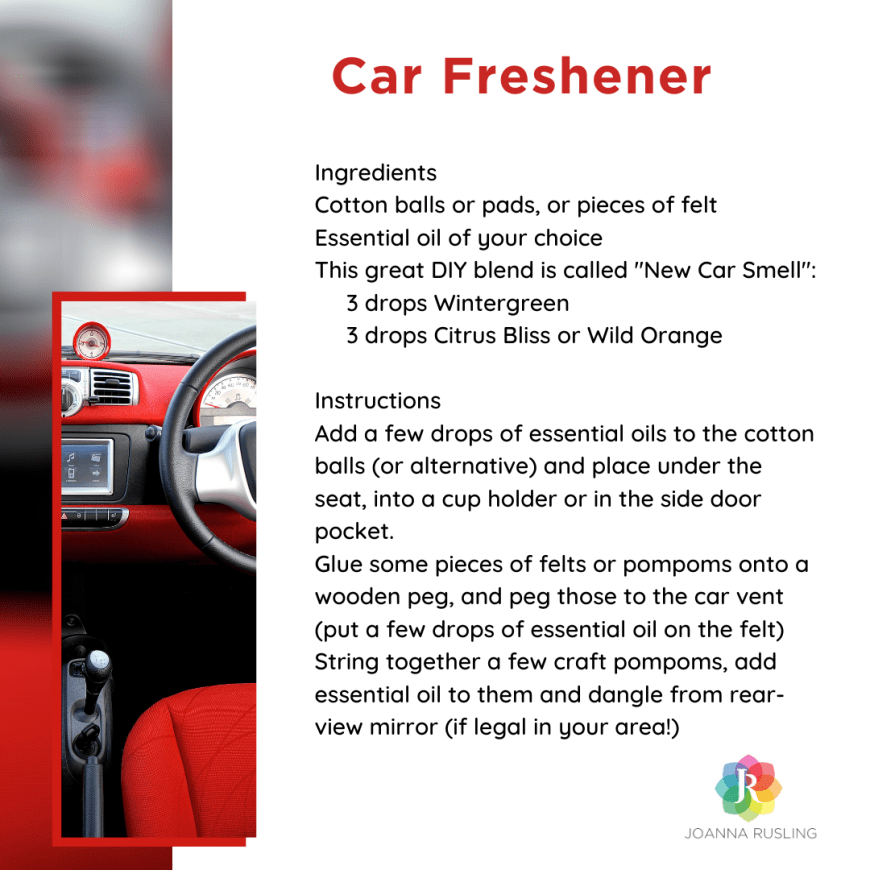
This recipe can be used to wipe down the interior of your car or as a natural alternative to the chemically-laden car fragrances you can purchase from the supermarket. It’s also really helpful for uplifting your mood!
Now let’s consider the VOC’s in our homes. Over time our brains recognise scents, and our Amygdala (flight, fight, freeze) will become used to the scents we surround ourselves with. This means we can become desensitised to the chemical fumes from cleaning products or air fresheners that our brain would otherwise consider a strong or overpowering smell. As we think the scent has ‘worn off’ or the house doesn’t smell clean, we add more cleaning product and more air fresheners, unknowingly increasing our exposure to VOC’s.
Essential oils are a natural and effective way to clean and scent our homes without harmful fumes or residue seeping into our systems. As an added bonus, they can assist our mood and our thought processes as we go about our daily lives.
In the same way our brains become accustomed to harmful smells, we also recognise and enjoy the beneficial scent of natural elements. Over time, as we continue to use oils in our homes we recognise the comforting feeling of a clean and healthy house, and the chemical fumes we once recognised will become offensive and avoidable. I know a number of people who have restored their sense of smell, lost from exposure to toxins, by switching to essential oils and nutrition to help the body cleanse and restore itself.
A great way to introduce essential oils into your air and living space, is by using reed diffusers. It’s inexpensive, decorative, creative (use those old vases or a pretty glass jar) and they can help with seasonal threats that find their way into our homes. Reed diffusers can be used in your bedroom to promote restorative sleep, and in your bathroom or laundry to dissipate odours. Fantastic for the toilet as we often can't plug in an electric diffuser in this space.
In addition to the air we breathe, VOC’s can be found in the personal care products we use on a daily basis, without a second thought. Our makeup, lotions, toothpaste, shampoos, perfumes and colognes all contain chemicals that are harmful to us. It can be difficult to connect the dots between chemical reactions or symptoms we might experience and the products we’ve been using, as pharmaceutical companies cleverly list the ingredients on the packaging we throw away!
The additives and compounds found in these products are seeping into our bodies through absorption. They’re known to build up, cause irritation, have been linked to sperm damage, and most frighteningly … they’re finding their way into our bloodstream.
So as we continue to use these products on a daily basis and we’ve become oblivious to the toxicity, our bodies are taking it all in. Although this is a frightening reality, there are ways to avoid the toxic overload from these products by using the natural alternatives are available to us. Recipes like “On Guard” or “Scrubbing Paste” can be used in your daily life to replace the harmful products we find ourselves reaching for on supermarket shelves.
There is one particular chemical which has been highlighted in the media and has received a lot of attention in recent times. Bisphenol A (BPA) is a chemical used in plastic which is found in everyday items like baby bottles, water bottles and the lining of tinned food. BPA has been found to be an endocrine disrupter, which means it is proven to be interfering with and affecting our hormones.
Although we are surrounded by chemicals like BPA on a daily basis, and although we can’t eliminate all traces from our lives (without moving off the grid!) there are ways we can actively avoid and limit our exposure.
AVOID EXPOSURE
- Check for a BPA-free label on foods and packaging
- Buy and store foods in glass jars, not plastic
- Use fresh, frozen, or dried products – not canned
- Avoid microwaving foods in plastic containers
- Do not wash plastic containers in the dishwasher or use harsh detergents on them
- Choose wooden toys instead of plastic
- Breast feed infants as long as possible instead of bottle feeding, or use glass bottles
USE SAFE PRODUCTS AND MATERIALS
- Glass
- Steel
- High quality plastic called HDPE
- High density polyethylene
USE NATURAL ALTERNATIVES
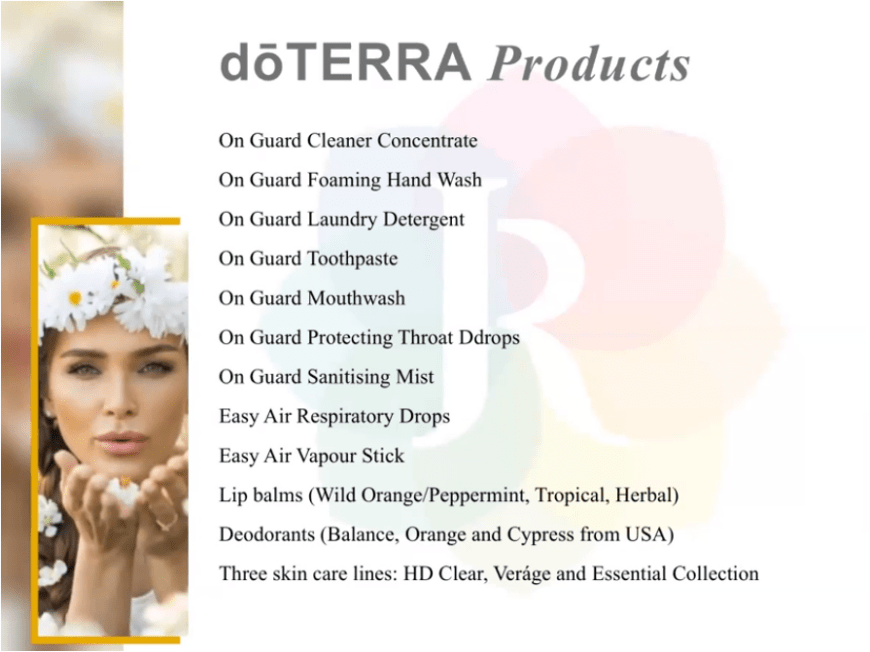
These products make beautiful gifts! If you’ve got a friend or family member who has everything, this is a thoughtful way to treat them.
Another area of toxicity finding it’s way into our lives, is heavy metals. The impact of certain heavy metals in our environment means they are finding their way into our systems. Metals that are not designed to be there have the potential to impact our nerves and their ability to conduct in the right way.
Over exposure to metals such as aluminium, can lead to neural defects with a mounting body of evidence drawing connections to diseases such as Alzheimer’s and conditions such as Autism. For those with a functional gut, most metals will pass straight through however if you’re experiencing symptoms of a leaky gut, these heavy metals can have real and lasting effects.
Now let’s talk about Food. Food is a real source of toxicity affecting every one of us. As an essential component of life, the dietary choices we make will determine the level of food toxicity we introduce to our bodies. Every day foods containing chemicals, geneticially modified components, metals and other toxins which claim to be ‘real’ foods, enter our bodies and have direct effects on our systems, skin and behaviours. This is especially the case for small children who, by eating these foods, are ingesting the same amount of toxins as fully grown adults.
Colours and preservatives have been shown to cause tumours in rats and mice, and have a direct connection to allergies. Whilst changes have been made in Europe (and suppliers such as Aldi have made conscious changes) these additives are still used and are permitted in Australia. Whilst labeling laws in Australia do ensure these ingredients are listed, we are still less regulated than other countries and it is left up to the consumer to decide whether to purchase and consume them.
So when it comes to fruit and veggies don’t be misled by labels claiming to contain natural ingredients to acquire your daily intake. I always stick to the rule of thumb “if you can pick it, you can eat it”.
Knowledge is key in reducing your dietary toxic load. The more you know about the food you’re eating, where it comes from, and what’s in it – the more conscious you’ll be when deciding what comes to the dinner table for you and your family.
Every year the Environmental Working Group (EWG) publish the “Dirty Dozen”:
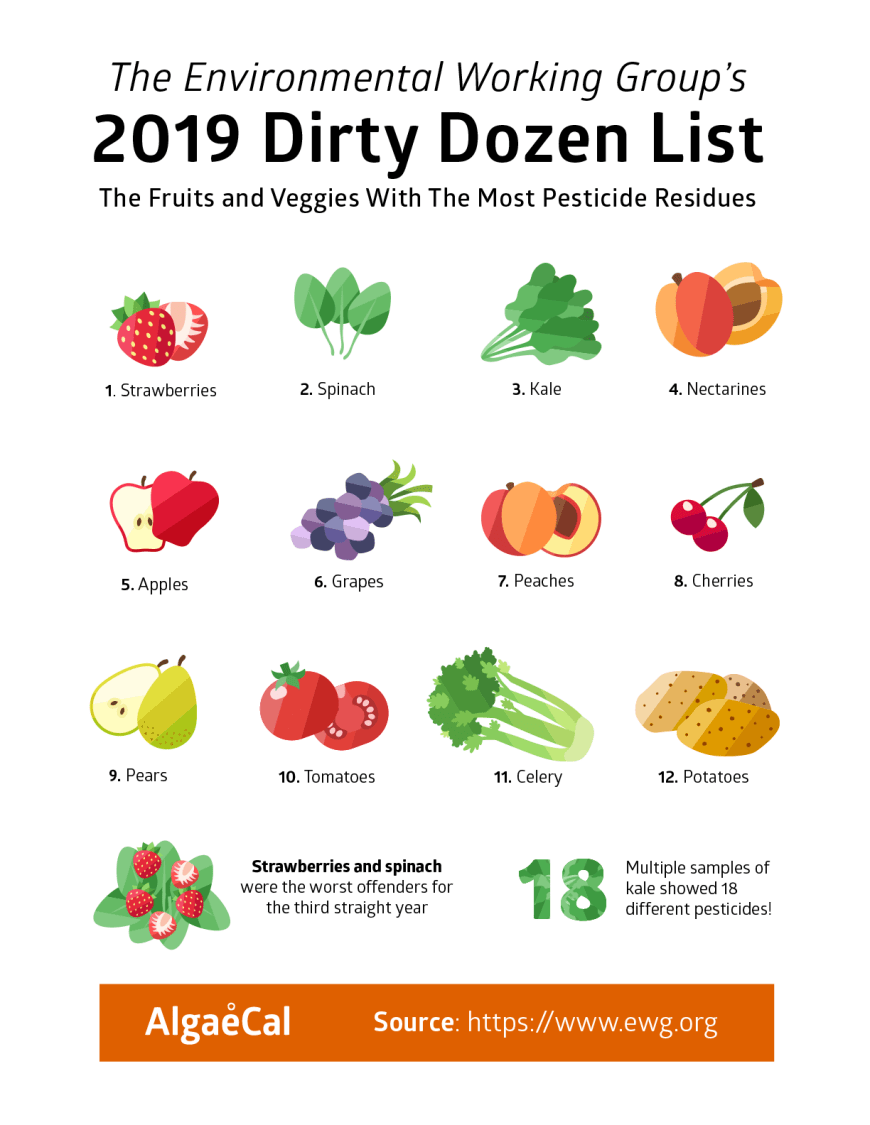
These are the top 12 fruit and veggies we want to be sure to buy from organic or biodynamic sources as they are the most sprayed crops. So why not try and grow them yourself, buy organic or directly from the grower, or at least find out where they’re coming from - then you’re going to be consciously reducing your overall load of pesticides.
You could also incorporate a lemon spray to wipe and clean your fruit and veggies, which will also help to make them last a lot longer or add a few drops to a sink filled with water to rinse your fresh produce.
Providing your body with bio-available nutrition will be supportive overall with helping you to combat the toxic load from the dietary perspective.
To summarise:
- Exercise
- Eating right
- Stress
- Food prep (add a few drops of lemon and pre-soak your fruit and vegies)
- Avoid chemicals in personal care products and use natural alternatives
- Avoid chemicals in your home by using natural cleaning products
dōTERRA Wellness Lifestyle Pyramid
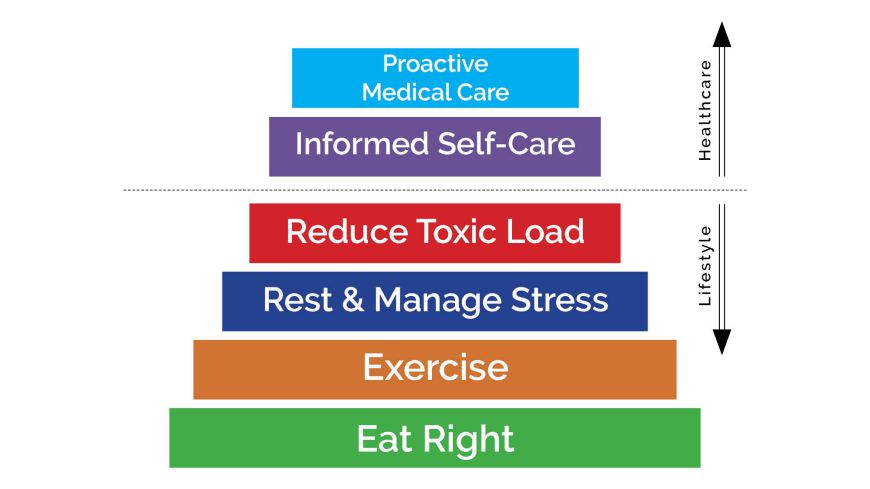
By using the dōTERRA Wellness Lifestyle guide, you can make positive choices to achieve balance and overall wellbeing.
Reducing toxic load is a major component in achieving this balance and by working towards a strong and healthy mind and body, you’ll feel the benefits across all areas of your life.
To enjoy the natural alternative recipes referred to in this blog, you can download the Low Tox Livin Doin’ doTERRA by Joanna Rusling Ebook.
* Cover Photo by Tom Roberts on Unsplash
